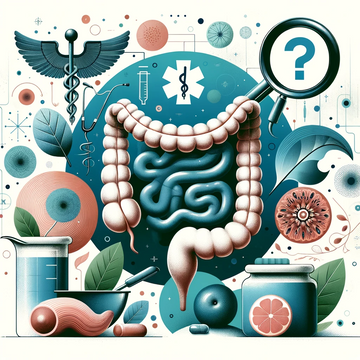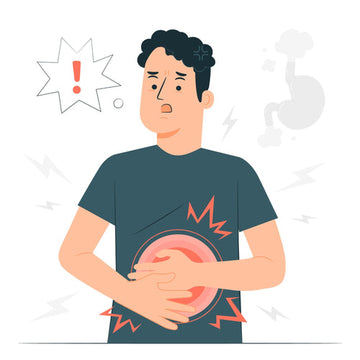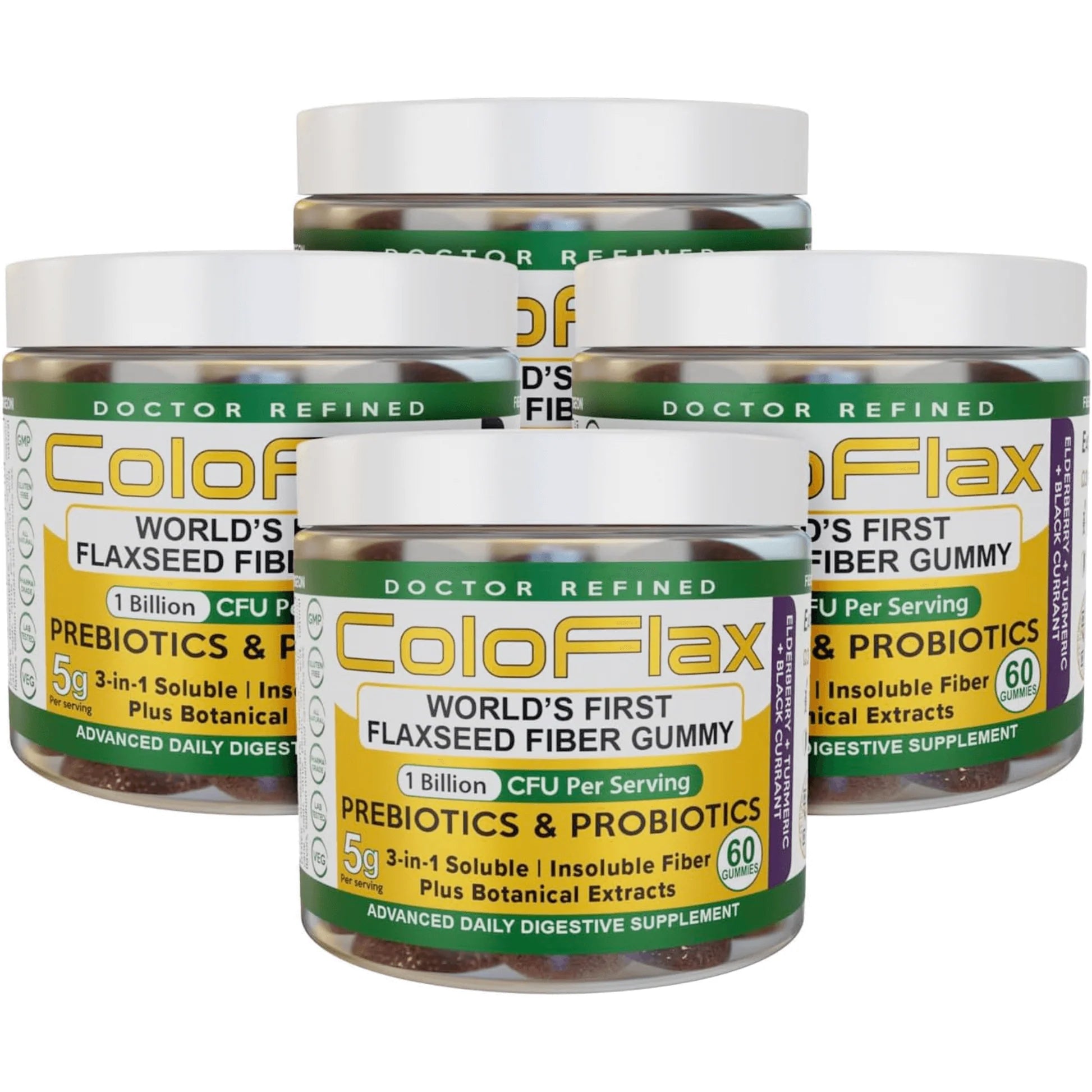In some communities, colonics are considered the best way to improve your gastrointestinal health. Proponents claim that it’s a gentle, harmless process that can rid your colon of excess waste and leave you feeling healthier, lighter, and better overall.
On the surface, it makes sense. It’s just waste, after all, and the treatment clearly works. But what’s really happening and why do many health experts advise caution when getting colonics and warn against regular use?
What are Colonics?
Also known as a “colon cleanse” and “colonic hydrotherapy”, a colonic is a process of introducing water to the colon via a tube. Up to 16 gallons of water can be added and some practitioners also introduce additional substances, including herbal extracts and coffee.
Once inside, the water is typically left for a short time before it is released and expelled, taking all of the waste with it.
Why Do People Get Colonics?
We don’t want to get too graphic here but think about how sluggish and tired you feel when you’re constipated. Not only does it feel like you’re carrying around an extra weight, but if the problem persists, it produces a general malaise that can make you moody and irritable.
When you eventually have a bowel movement and shift all of that waste, you feel great. A weight has literally been lifted, and your mood changes in an instant.
This association is likely one of the main reasons people are drawn to colonics. Marketing also plays a major role. Many practitioners claim that colonics have a detoxifying effect and even suggest that the colon holds onto waste for many years in its so-called fleshy “pockets”.
So, people who are struggling with general fatigue and other issues begin attributing these problems to their digestive health and then see colonics as the answer. In truth, those issues could be related to digestive health, but colonics are rarely the best solution.
What are the Issues with Colonics?
There are a few potential issues with colonics.
The first stems from the way they are marketed. As noted above, practitioners have been known to stretch the truth. It happens in many industries and with many products—what begins as a beneficial treatment that could help with some health issues eventually morphs into a panacea that can do everything but make you a cup of tea and turn on the TV.
Where colonics are concerned, the misinformation usually revolves around the apparent detoxifying effects. Some practitioners claim that the practice can help with everything from high blood pressure to depression and more. There is very little evidence (if any) to support these claims, and there is always a better solution.
For instance, while colonics can rid your colon of excess waste, it’s not a long-term solution and the issues will invariably return. It makes more sense to increase your fiber intake, drink more water, improve your diet and lifestyle, and see a doctor if the issue persists.
There are also some more immediate concerns with colonics. They may lead to an infection or a tear in the rectum, for instance, and they can also cause dehydration and serious electrolyte imbalances.
Can You Die from a Colonic?
There is a very small risk of death from colonics, but there have been deaths in the past, and considering the risk of electrolyte imbalance and infection, along with the prevalence of this practice, it’s not a surprise.
This is partly the result of poor regulations, with some practitioners not doing enough to protect their customers.
For instance, a report on colonic irrigation in New South Wales, Australia, found shockingly high levels of bacteria in water tanks.(1)
What are Enemas?
Enemas are very similar to colonics, as they introduce water (as well as stimulating fluids or air) through the rectum with the aim of removing waste. However, they typically introduce much smaller amounts into a smaller area and focus more on stimulating the natural release of waste as opposed to flushing it all out.
Enemas can be used in a medical setting and they can also be self-administered. As with colonics, there are a number of risks. The difference is that colonics are often recommended for non-medical reasons while enemas are typically reserved for severe constipation and used when all other treatments have failed.
Of course, there are exceptions, and enemas seem to be popular at certain wellness retreats, where participants are told to fast, drink a lot of water, and administer regular enemas to flush out their bodies. Needless to say, most of what these retreats preach is pseudoscience.
What are the Issues with Enemas?
If the enema is administered by a healthcare professional for valid medical reasons, it can be perfectly safe. They should make sure of it. The issue is that enema kits are easy to find and many wellness sites recommend performing enemas at home to improve gastrointestinal health.
It should go without saying, but a non-medical professional in a home setting can’t guarantee the same level of cleanliness and safety as a nurse in a clinic.
An incorrectly administered enema can damage the rectum and/or introduce bacteria. If the process is repeated every time there is an issue, it means the real cause is not being addressed. Furthermore, repeated incorrect use can cause serious damage.
A case study published in 2021 tells of a 95-year-old man who presented to the ER with the symptoms of sepsis. Upon further examination, doctors found he had a history of constipation and had been frequently using self-administered enemas to treat his condition. Unfortunately, he had an undiagnosed gastrointestinal issue that eventually damaged his colon, leading to multiple organ failure and death.(2)
Of course, this is the extreme end of the scale, and it doesn’t mean you will end up the same way following a single home enema. But if you’re not a doctor and haven’t undergone the necessary tests, you don’t know what’s happening down there and can’t be sure that an enema is the best solution. You also can’t be sure that the hose is sanitized or the water is clean.
What Does the Science Say About Colonics and Enemas?
In 2011, the Georgetown University Medical Center published a study that looked at the pros and cons of colonics. After examining 20 relevant studies, the researchers concluded that the practice caused numerous side effects and provided absolutely no benefit.(3)
They found that there were “serious consequences for those who engage in colon cleansing”, regardless of whether it was performed at home or in a clinic. They went on to add that many producers and services tout benefits that “don’t exist” before highlighting side effects such as:
- Cramping
- Bloating
- Nausea
- Electrolyte Imbalance
- Vomiting
- Renal Failure
In addition, researchers noted that some of the herbal preparations used in colon cleansing could cause liver toxicity and anemia.
Concerns have also been raised about the potential impact on the gut microbiome. As noted in our guide to the best gut health diet, the microbiome is a delicate balance of beneficial bacteria that promotes regularity and can also support your immune health. By introducing water and—potentially—other substances, you could be upsetting that balance.
If the water or equipment isn’t clean, the results could be catastrophic for your gut health.
These discoveries are not new. In truth, medical professionals have been advising against the practice for many decades. The American Medical Association condemned it nearly a century ago, and medical experts continue to advise caution.
Can I Use Colonics/Enemas to Detox?
Detox diets are nonsense and completely unnecessary. Your body has its own means of detoxing and you don’t need to rely on methods such as fasting and colonics to rid your body of toxins.
Many medical professionals will tell you that the only true detox is a drug detox. It’s the means by which individuals addicted to drugs and alcohol wean themselves off those substances. It can entail a complete change of diet and lifestyle, as well as prescription medication and supplements.
If you’re not struggling with an addiction and are merely feeling a little under the weather, you don’t need a detox, you just need to reassess your diet and lifestyle.
Some of the most common reasons for stress, fatigue, and digestive issues seemingly unrelated to any preexisting illness include:
- Lack of sleep
- Overworking
- Low-fiber diet
- Too much alcohol
- Drug use/smoking
- Anxiety
Detox companies have employed a number of questionable tactics to make consumers think they are getting a good deal.
A few years ago, for instance, it was common to see detox pills filled with polymerizing agents that turned excrement into long strings of plastic-like substance. The result was that users would see something long and alien leave their bodies and assume the pills were working.
Oftentimes, these pills were given out at weight loss and detox retreats alongside home-use enemas, with users feeling like they got their money’s worth as soon as the fasting and “polymerizing pills” invariably led to weight loss and alien feces.
You may have also seen the pads that claim to draw toxins out of your feet. You wear them for a few hours and when you remove them, they are coated in a green/brown sludge. You’re led to believe that you’ve just expelled a host of harmful toxins, when in fact the pads just contain a chemical that turns green when it comes into contact with sweat.
Of course, unlike those green pads and trick pills, colonics and enemas actually work. They will rid your body of waste, and if you have been struggling with intermittent constipation for a long time and never feel truly “empty”, that will be a massive relief. But at what cost? The best-case scenario is that you temporarily fix the issue and it will return with a vengeance in weeks or days. The worst-case scenario is that you do lasting damage to your health.
What Can I Use In Place of a Colonic?
It might not be what you want to hear, but the best alternative to quick-fix colonics and enemas is to switch up your diet and lifestyle:
- Drink more water
- Eat more fiber
- Consume more whole fruits and vegetables
- Exercise regularly
- Make sure you’re sleeping enough
It’s not a quick fix, but you’d be surprised at how quickly these sorts of changes can improve your life. If you’re constipated, for instance, then getting enough fiber, drinking water, and exercising can trigger a bowel movement in as little as a few hours and ensure you stay regular thereafter.
If that doesn’t work, try some prune juice or another natural laxative.
It’s great to think that you can just spend a few bucks, lie down for an hour or so, and then let some soothing water take all of your troubles away and leave you awake, energized, and happy. But that’s not how the world works, and real change requires a little more effort.
For more pointers, check out this guide to improving your gut health in a week.






